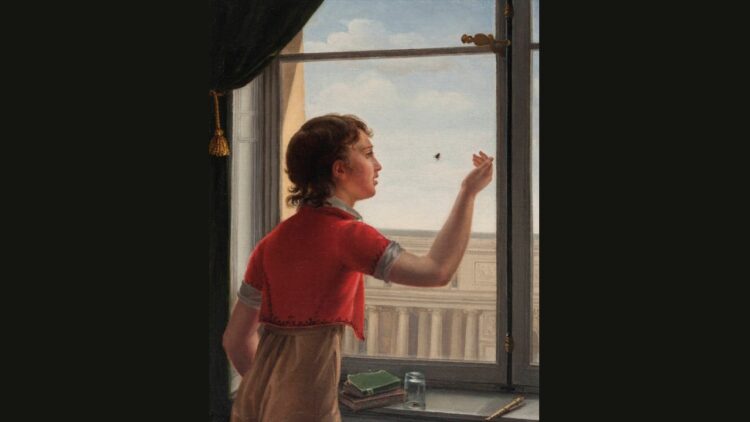On Swatting a Fly
The fly I hunted down is on a pane,
a window pane, where yesterday a swat
with rolled up, A-4 notebook left him slain
upon the glass, a splattered, lifeless blot.
I try to work, but how my eye is drawn
towards that ruined body and that splurge
of dried-up guts – for he, like l, was born,
and yet for him no stoic funeral dirge.
Was opening a window such a task,
to free him from my own restricted cell,
to turn a latch and shoo him, that he bask
in sunshine, in the midst of Life’s brief spell?
A penalty in conscience I have paid
when mercy, for an instant, was delayed.
Paul A. Freeman is the author of Rumours of Ophir, a crime novel which was taught in Zimbabwean high schools and has been translated into German. In addition to having two novels, a children’s book and an 18,000-word narrative poem (Robin Hood and Friar Tuck: Zombie Killers!) commercially published, Paul is the author of hundreds of published short stories, poems and articles.
















You seem to be very prolific, Paul. I enjoyed your clever poem having had
such regrets but never quite for a fly.
Alas, I accidentally stood on a gecko the other day. I reckon it was more the fact that the fly was squished on a window pane for several weeks, when I could have shooed it outside.
About being prolific, I think it’s more that I’ve had time to sit down and submit, recently.
Thanks for reading and commenting, JD.
I’m a lesser man since I have yet to be disturbed by the demise of a fly. I don’t know why a gecko is different, but I would lose sleep over that. I have no logical explanation for the difference in attitude, but your poem has given me something to ponder.
My sorrow about the gecko probably comes from them being from further up the evolutionary tree (if you believe in that sort of thing), and they eat flies mozzies and roaches – making them welcome house guests.
Thanks for reading and commenting, Warren.
Poets often strive for a poem that is beautiful, but this one is not. Not important either, one might say. That makes me look for reasons you would have written it, Paul. I come up with more than the moral in favor of life, or ethics in favor of mercy. For the religions of Western civilization, there is no immorality in killing a fly. Cultural superstitions say not to kill a ladybug, or a cricket singing in one’s house, but flies are fair game. Considering their triviality in our outlook, this poem could be an implicit microcosm/macrocosm contrast, with the fly representing any life considered of little worth for any reason in a larger sphere. That offers much thought. Your remark that fly and speaker were both born, but the dead fly is unmourned, recommends compassion as a motive for mercy. Many applications could flow from that. Or the poem is personal, maybe self-revelatory. It spends time describing human perceptions, and tells of an effect in conscience. All these possibilities exist, without excluding others. Good work, Paul.
There were many reasons for regret over this particular fly, Margaret. It had been buzzing around me in my office and disturbing me for some hours and eventually landed on the single large window that opened a little, but not much. Annoyed as I was, I swatted it, causing it to splurge rather than fall to the floor where it could be scooped up. I was then busy at some task and unable (or unwilling) to clear its remains from the window pane.
The fact that the remains were there preyed on my mind much like in Poe’s ‘The Cat’, I think it was, and by the time I cleaned the fly off the window, I was feeling guilty because it would not have been a difficult task to shoo it out the window.
Such are the thoughts when spending too much time isolated in an office. At least I got a poem out of the incident.
As always, thanks for your deeper than surface analysis that gets the old grey cells going.
This is such a concise, well-worded admission of a very common aspect of the human condition; sometimes, we don’t even consider that others in life deserve a chance to survive. We are a very arrogant species by nature, and I think this poem relates that well. Thank you for sharing this!
Coincidentally, I recently wrote a 1200-word story from the POV of planet Earth, warning us that the 6th Great Extinction could be ours if we don’t fall into line, and points out how more beneficial the humble bee is to the planet than humans in the long run.
I’m glad my poem resonated.